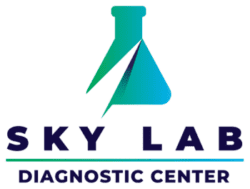What You Need To Know About Covid-19 Antibody Test Kits
Currently there are two types of tests available for COVID-19: antibody tests and diagnostic tests. A diagnostic test detects if a patient is infected by the SARS-CoV-2 virus by using a COVID-19 test kit. An antibody test detects if a patient had a previous infection, and it utilizes a COVID-19 antibody test kit. You probably know a lot about coronavirus test kits, but do you know enough about COVID-19 antibody test kits?
Here’s what you should know about Coronavirus Antibody Tests.
How the COVID-19 Antibody Test Works
The antibody test kit detects the presence of COVID-19 antibodies in the plasma or blood. The test is a qualitative membrane-based immunoassay that consists of two components: an Immunoglobulin M (IgM) component, and an Immunoglobulin G (IgG) component. IgM, the first antibody that the body produces when fighting a new infection, can be detected in the acute phase — the first stages of infection. However, it disappears within one to two months after the infection. IgM is mostly found in the blood and lymph fluid.
Immunoglobulin G, the other component tested by COVID-19 antibody test kits, is the most abundant antibody found in the blood, serum, and plasma. It protects a patient body from viral and bacterial infections. Typically, the body produces IgG antibodies after 21 days of infection and up to the later stages until it destroys the infection process. When a patient is infected by the SARS-CoV-2, the body reacts by producing Immunoglobulin G, usually after 21 days of infection.
What is a positive or negative test result?
The COVID-19 antibody test kit has two well-calibrated test regions marked M and G. This allows easy detection of IgM and IgG antibodies. When the specimen tested has COVID-19/SARS-CoV-2 IgM antibodies, the test kit will display a colored line in the test region marked M. Likewise if the specimen tested contains COVID-19/SARS-CoV-2 IgG antibodies, the antibody test kit will display a colored line in the test region G. The two results are deemed positive and show that a patient is in recovery or had a previous COVID-19 infection. This is possible because 80% of the people who catch COVID-19 recover without special treatment.
If the specimen tested doesn’t contain COVID-19/SARS-CoV-2 antibodies, there’ll be no colored line displayed on the test kit. This is a negative result, and it shows that the patient hasn’t been infected with SARS-CoV-2.
Precautions to take when using Covid-19 Antibody Test Kits
By default, the COVID-19 antibody test kit will display a colored line in the control line region. This indicates there is enough volume of specimen in the test kit and that membrane wicking has been successful. If the test kit doesn’t display this line, the test results will be invalid, and the physicians will have to retest the specimen with a new test kit.
Your physicians should also be aware of false-negative and false-positive results. A patient who takes an antibody test too soon after infection may have a negative result because the body has not yet produced antibodies to the infection. This results in a false negative result. Cross-reactivity from pre-existing antibodies in a patient’s body may cause a false-positive result.
Additionally, doctors must also protect themselves when conducting COVID-19 antibody tests. Your physicians should have covid-19 test kit surgical face mask, disposable garments, medical sponges, and disinfectant spray. This protects your doctors from contracting COVID-19 when conducting an antibody test. As a hospital administrator, it’s your duty to source quality covid-19 antibody test kits for sale, and other medical supplies such as laparotomy sponges and face masks.
It’s important for your hospital to buy COVID-19 antibody test kits to facilitate antibody testing. Your physicians should be able to conduct both diagnostic and antibody tests to provide quality care to your patients. Luckily, you can buy COVID-19 antibody test kits in bulk from a top medical supplier to boost your hospital’s COVID-testing capacity.

